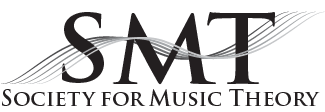Due to changing needs and technologies, the SMT Executive Board has decided to retire SMT Discuss (effective Nov. 9, 2021). Posts will be preserved for archival purposes, but new posts and replies are no longer permitted.
Devin Chaloux
About
- Username
- Devin Chaloux
- Joined
- Visits
- 98
- Last Active
- Roles
- Guest
- First Name
- Devin
- Last Name
- Chaloux
- Affliation or Location
- Indiana University
- Research Interests
- Transformational Theory, Renaissance Sacred Polyphony, Fin-de-siecle American art music
- devin.chaloux
- @Musiktheorist
Comments
-
I will mention though that there are many other viable reasons for not wanting to support Paypal. They have a long history of consumer complaints and have been (in my opinion) a shady company for quite some time. My guess is that we go with Paypal b…
-
I currently work in student affairs for a prominent non-profit online university (60,000 online students). Frankly, we only have one music class (music appreciation). I think there are a few things that are preventing the spread of online MAs or MMs…
-
Hi Nicolas, Thanks for the response. That's my sense (theory lagging behind practice), but I was curious if anyone stumbled upon anything. I think Peter Schubert has some nice discussions in his textbook--but I didn't see any specific mention of tre…
-
Hi Nicolas, It is difficult to get more specific since I would be interested in any writings on the rise of homophony (which for the sake of clarity, I will define as "all sounding voices moving at the same rhythm.") My interest in the subject aris…
-
Hi Carson, Thanks for the reply. I'm not looking for examples of homophony however (there are many examples that pre-date Monteverdi) but rather how people discussed this style of composition. From all the theoretical works that I have encountered,…
-
I am not sure that the "demise of musica ficta" is perhaps the way to approach this question. My guess is if the student looked toward the rise of chromaticism in the 16th- and 17th-century music, then they may be more successful in finding the answ…
-
Nice article by John Covach in the Chronicle of Higher Education, which cites the CMS study: http://chronicle.com/article/Rock-Me-Maestro/151423/?cid=cr&utm_source=cr&utm_medium=en It's behind a paywall - you need to subscribe to the Chron…
-
I feel like there are so many tools that we are unaware of, but at the same time there are plenty of tools that we are aware of that seem limited in possibility given the subject at hand. How nice it would be to have students complete assignments on…
-
Hi Linda, Welcome to the world of increased "accountability" in higher education. I had the fortunate experience of taking a seminar on "Accountability" with the head of the NSSE this past summer where we explored this issue in depth (i.e. what is "…
-
Fascinating Bob! I'm trying to envision at what level such resources like Omeka could be useful. Is this something you could envision even freshmen using in their introductory harmony classes, or is this most likely suited for upper classmen and gra…
-
Though I haven't looked for it explicitly, I haven't seen any mention of the "second theme" of the B minor Rhapsody (~1:47 in the recording provided) as being borrowed from Grieg's "Aase's Death" from Peer Gynt. Originally, I thought it might have b…
-
I realize my previous comments may have been construed as wholly negative, but I do wish for something to happen to the wikipedia pages on music theory. As many have mentioned, it is an important resource just because of the sheer amount of traffic …
-
A few years ago at Buffalo, Charles Smith was asking his History of Theory grad students edit the Wikipedia entries for historical figures and concepts in music theory. I think this is an excellent idea and a good place to start, because unlike pot…
-
Like Bob, I have dealt with the issue of music theory articles on Wikipedia for some time. Unlike Bob, I have given up in frustration. There are some great articles and great contributions. There are several problems with the current state of music …
SMT Discuss Manager: smtdiscuss@societymusictheory.org
